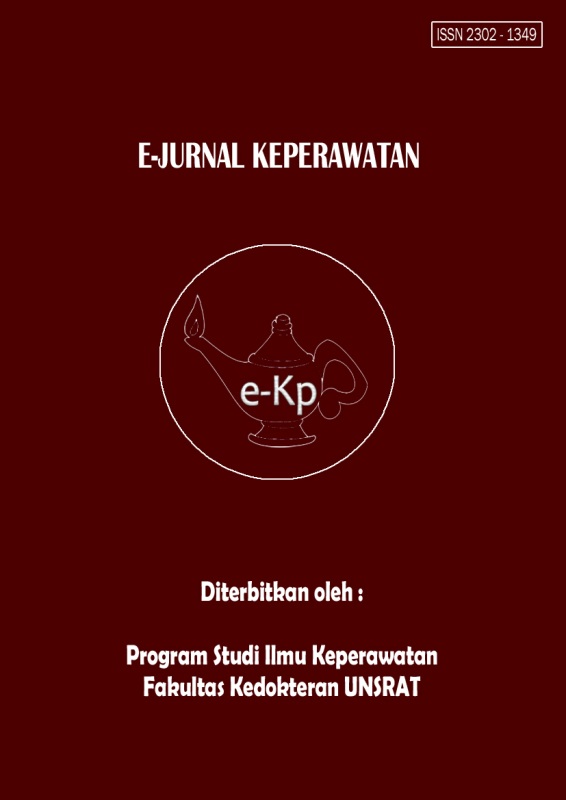HUBUNGAN PERSONAL HYGIENE DENGAN KECACINGAN PADA MURID SEKOLAH DASAR DI KABUPATEN BOLAANG MONGONDOW UTARA
DOI:
https://doi.org/10.35790/jkp.v1i1.2231Abstract
Abstract: Dewormy is a chronic endemic disease caused one or more worms that enter into the human body, with the highest prevalence found in children. Dewormy can be affected by several factors, namely environmental factors, personal hygiene (cleanliness), social economy, and the level of knowledge of the parents. Personal Hygiene is an act to maintain the cleanliness of one's health and well-being, both physical and psychic. The research was carried out with methods, selection of cross-sectional samples performed 3 stages, namely with proportional stratified sampling, purposive sampling and simple random sampling. A sample of 110 respondents.Analyzed data with chi-square statistical test of the significance level (α) of 0.05.. The results showed that out of 110 study subjects, known to students with good personal hygiene status as many as 82 people (74.5%) and less well as many as 28 people (25.5%). Laboratory results for the category of positive Dewormy amounted to 20% (22 people) and the negative category Dewormy is equal to 80% (88 people). 22 students who positively Dewormy, known around 16 people (72,7,1%) with poor personal hygiene, and about 6 people (27.3%) with good personal hygiene.The conclusion of this research that there is a meaningful relationship between personal hygiene with Dewormy on primary school student with p value = 0.001.
Keywords: Personal Hygiene, Dewormy, Ascaris Lumbricoides, Hookworm
Abstrak: Kecacingan merupakan penyakit endemik kronik yang diakibatkan satu atau lebih cacing yang masuk ke dalam tubuh manusia, dengan prevalensi tertinggi terdapat pada anak-anak. Kecacingan ini dapat dipengaruhi oleh beberapa faktor yaitu faktor lingkungan, personal hygiene (kebersihan diri), sosial ekonomi, dan tingkat pengetahuan orang tua. Personal Hygiene adalah suatu tindakan untuk memelihara kebersihan dan kesehatan seseorang untuk kesejahteraan, baik fisik maupun psikisnya.. Penelitian ini dilaksanakan dengan metode cross sectional, pemilihan sampel dilakukan 3 tahap yaitu dengan purposive stratified sampling, proporsional sampling dan simple random sampling. Sampel 110 responden. Analisa data dengan  uji statistik chi square , alternative Fisher’s Exact Test dengan tingkat kemaknaan (α) 0,05. Hasil penelitian menunjukan bahwa dari 110 subjek penelitian, diketahui murid dengan status personal hygiene baik sebanyak 82 orang (74,5%) dan kurang baik sebanyak 28 orang (25,5%). Hasil laboratorium untuk kecacingan dengan kategori positif kecacingan sebesar 20% (22 orang) dan dengan kategori negatif kecacingan sebesar 80% (88 orang). Dari 22 murid yang positif kecacingan, diketahui sekitar 16 orang (72,7,1%) dengan personal hygiene kurang baik dan sekitar 6 orang (27,3%) dengan personal hygiene baik. Kesimpulan dalam penelitian ini yaitu ada hubungan yang bermakna antara personal hygiene dengan kecacingan pada murid sekolah dasar dengan nilai p value = 0,001.
Kata Kunci: Personal Hygiene, Kecacingan, Ascaris Lumbrocides, Hookworm











3.png)
2.png)
